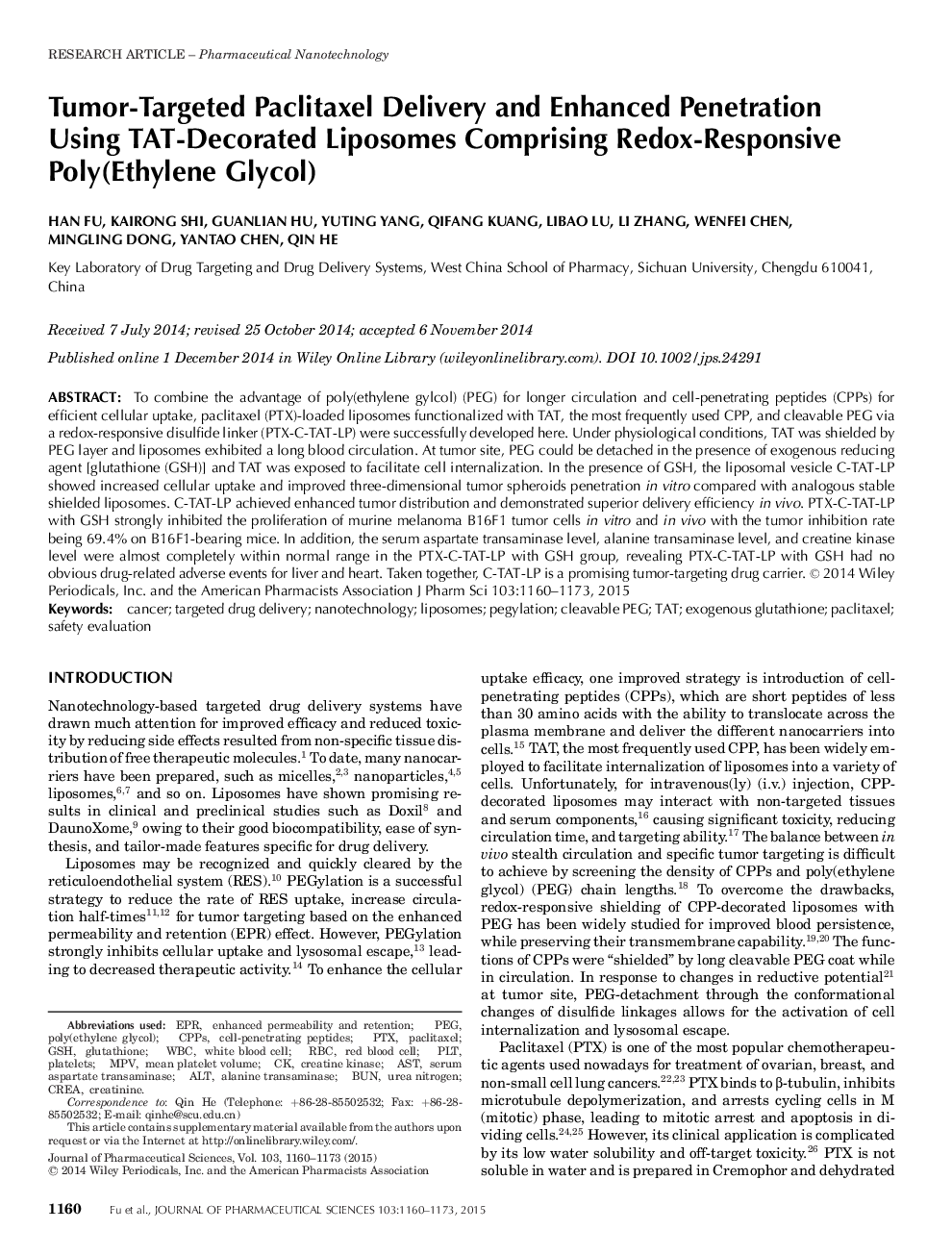| Article ID | Journal | Published Year | Pages | File Type |
|---|---|---|---|---|
| 10162074 | Journal of Pharmaceutical Sciences | 2015 | 14 Pages |
Abstract
To combine the advantage of poly(ethylene gylcol) (PEG) for longer circulation and cell-penetrating peptides (CPPs) for efficient cellular uptake, paclitaxel (PTX)-loaded liposomes functionalized with TAT, the most frequently used CPP, and cleavable PEG via a redox-responsive disulfide linker (PTX-C-TAT-LP) were successfully developed here. Under physiological conditions, TAT was shielded by PEG layer and liposomes exhibited a long blood circulation. At tumor site, PEG could be detached in the presence of exogenous reducing agent [glutathione (GSH)] and TAT was exposed to facilitate cell internalization. In the presence of GSH, the liposomal vesicle C-TAT-LP showed increased cellular uptake and improved three-dimensional tumor spheroids penetration in vitro compared with analogous stable shielded liposomes. C-TAT-LP achieved enhanced tumor distribution and demonstrated superior delivery efficiency in vivo. PTX-C-TAT-LP with GSH strongly inhibited the proliferation of murine melanoma B16F1 tumor cells in vitro and in vivo with the tumor inhibition rate being 69.4% on B16F1-bearing mice. In addition, the serum aspartate transaminase level, alanine transaminase level, and creatine kinase level were almost completely within normal range in the PTX-C-TAT-LP with GSH group, revealing PTX-C-TAT-LP with GSH had no obvious drug-related adverse events for liver and heart. Taken together, C-TAT-LP is a promising tumor-targeting drug carrier. © 2014 Wiley Periodicals, Inc. and the American Pharmacists Association.
Keywords
Related Topics
Health Sciences
Pharmacology, Toxicology and Pharmaceutical Science
Drug Discovery
Authors
Han Fu, Kairong Shi, Guanlian Hu, Yuting Yang, Qifang Kuang, Libao Lu, Li Zhang, Wenfei Chen, Mingling Dong, Yantao Chen, Qin He,
